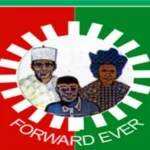
After moving to the United States in 1997 to teach English at the University of New Orleans, foremost poet and dramatists, Prof. Niyi Osundare was caught up in the August 23, 2005 Hurricane Katrina. His account of his ordeal in that storm made for interesting listening at the 2015 Ake Arts and Book Festival in Abeokuta.
Niyi Osundare was the headline guest at the 2015 Ake Arts and Books Festival. He came with a reputation packed in a humble suitcase but still there was always a buzz of excitement every time he was spotted in the crowd of writers and book lovers at the festival.
His simplicity bellied his reputation. When one sees him at a table at dinner, eating fufu and back slapping with fellow writer and academic Pius Adesanmi, his head of greying hair rolling from side to side as he laughed, one would have thought Adesanmi, a professor in his own right, is conversing with a peer he hadn’t seen for a long time.
Osundare was always smiling, shaking hands with the people who on seeing him, would stop to pay homage. When he stood up, he seemed taller than one had anticipated and his handshake is firm and gentle.
It is hard to visualise this man clinging for dear life, that grip held on to the ceiling in his basement, trying hard not to be swept away in the flood Hurricane Katrina had unleashed.
Having left his post as the Head of the Department of English at the University of Ibadan in 1997, where his reputation as a poet and playwright of note grew, Osundare moved to New Orleans, where he is a Professor of English at the University of New Orleans, USA.
It was there ten years ago that Hurricane Katrina struck. Osundare and his wife couldn’t get away in time because they had to ensure a guest staying with them caught her flight out.
“There was nothing to be done. So I thought we could ride it out in our basement,” Osundare told a packed hall at the Ake Festival. He spoke with the skills and demeanour of a practiced story teller and had the audience hanging to his every word, oohing and aahing at every significant turn of the story.
When the hurricane hit, Osundare and his wife where tucked in their basement hoping to see it through. Their house stood firm but was soon vanquished by the flood water the hurricane had unleashed. (At this point in the story, the audience oohed again.)
They oohed even more when they heard that Osundare’s entire library was destroyed by the water and when he recounted how the water flooded the basement, the audience was too stunned to react.
“I was hanging to the ceiling, my legs were in the water, and I was afraid I would get tired, let go and drown,” Osundare said.
He kept encouraging his wife to hold on as long as she could and she did. He had thought help would come quickly, but it took forever. Slowly, the hours tricked by.
“I was in that position for 26 hours!”
At this, the crowd went Ahhhhh! They could almost visualise it. This gracefully aging man, this legacy of Nigerian letters, clinging to a piece of fitment, terrified of letting go, terrified of dying in dirty waters, clinging on for 26 hours.
It was a long wait. A long time in which Osundare would reflect on his childhood back in Ekiti and the legacy of his father, a farmer in Ikerre, Ekiti, where Osundare was born. His father was unschooled and Osundare remembered rushing home with his report cards from school, clad in uniforms made from the cotton his father had farmed.
His father could not read, but what he knew then was that a report card with predominantly red ink was indicative of good performance.
“When he sees more black ink than red, he would ask if those who had more red ink had two heads?” Osundare said.
He also spoke of his father’s unusual library. “My father had a library. It was made of yams,” he said.
He thought also of his mother and her days of nurturing. He thought of all the things he could have done and would have done for her. But while his ordeal lasted, his mother back in Nigeria had no idea what was happening to her son. Though she was sitting in her living room watching TV, her other son, Osundare’s brother, ensured she never found out what was happening in New Orleans. Every time the news came on about Hurricane Katrina, his brother would change the channel.
The hours passed. The hurricane passed. In his basement, Osundare and his wife were still holding on. He was tired and his grip was loosening. He had no idea how long he could hold on.
And then there was some noise from outside.
Imagine here an audience in a cinema sitting on the edge of their seats, watching their hero, aging and fatigued and at the verge of falling into the water patiently waiting to claim his life. Imagine the collective sigh of relief as a dues ex machina comes to the rescue of the hero, plucking him out of the jaws of death.
In this instance, the dues ex machine that came to Osundare’s rescue was his Mexican neighbour. He owed his life to this Mexican.
“This man hardly spoke any English, but he knew we were there. So as soon as he got the chance, he came round to the house and was banging and banging and calling out,” Osundare said.
1, 833 people died in that tragedy. Osundare would not be one of them. Plucked out of the waters, he saw for the first time the devastation Katrina had visited on his community and the poor attempt at rescuing people.
“America got it wrong with Katrina. America got it completely wrong,” he said, shaking his head.
He and his wife were moved from one camp to another and he never got the chance to lay on a proper bed until about 72 hours later.
“I don’t know how it happened but the moment I fell onto the bed, I fell into a heavy sleep. In this sleep, my mother visited me,” he said.
In his dream, Osundare saw his mother, who at that point still had no idea what was happening. But while he slept, she came to him, singing, dancing and chanting his praise names and titles.
And then she said to him, “No flood in a foreign land would claim you.”
And here, the audience applauded euphorically. It was a fitting pay off for an enthralling story told by a man who has ways with words.
Of course Osundare has gone on to publish City without People: The Katrina Poems, a collection dedicated to the horrendous disaster that almost claimed his life and another collection titled Random Blues since then.
But nothing beats hearing the tales first hand, and Osundare tells is so well. But here in the Abeokuta evening warmth, with his story over, he leans back in his chair and surveys his audience.
He is only 68. There are still more poems in this man, many more years of teaching and many more awards to add to his 2014 Nigerian National Merit Award (NNMA) for academic excellence. But the memory of those days in August of 2005 will remain with him.




